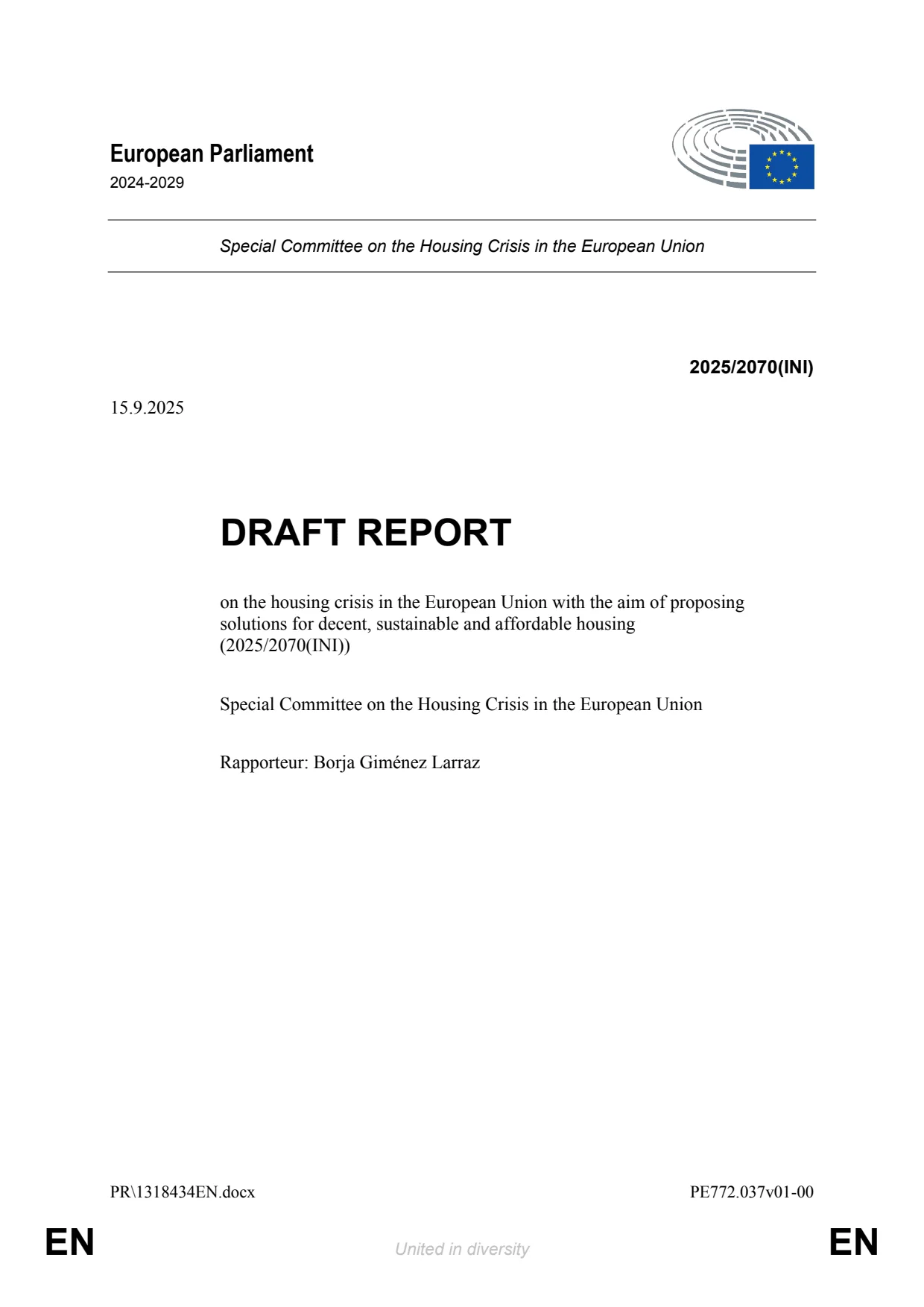AI-Generated Summary
Learn moreContext and Purpose
This mission report follows the HOUS mission to Paris, France, initiated by the European Parliament’s Special Committee on the Housing Crisis in the European Union. The committee aims to propose solutions for decent, sustainable, and affordable housing, emphasizing the urgency of addressing the ongoing housing crisis affecting low- and middle-income families across Europe.
Housing Crisis Overview
The report highlights a significant rise in housing costs, with house prices increasing by an average of 48% over the past eight years, while rents have risen by 18%, often consuming up to 40% of a household's monthly income. The crisis disproportionately impacts young people, delaying their ability to live independently, and exacerbates instability for families.
Key Drivers of the Crisis
The main cause of the housing crisis is the insufficient supply of dwellings, compounded by years of underinvestment in housing construction. In 2024, residential construction declined by 5.7%, following a 2.6% drop in 2023. Issues such as lengthy building permit processes, legal uncertainties, and rising material prices further hinder housing development.
♂️ Labor Shortages
The construction sector faces a significant shortage of skilled labor, which impacts its competitiveness and ability to meet housing demands. Encouraging vocational education and training for young people is crucial to fill these gaps.
Policy Recommendations
The report calls for a comprehensive, multi-level governance approach to housing policies, emphasizing the importance of local and regional authorities in addressing specific housing needs. It proposes urgent measures to boost housing supply by reducing regulatory burdens, easing permitting processes, and mobilizing public and private investments.
Focus on Young People and Vulnerable Groups
Special attention is given to young people and essential workers struggling to afford housing. The report advocates for measures that enable access to housing credit, including guarantees for first-time buyers and incentives for low-interest loans.
The Role of EU Institutions
The European Union is encouraged to act as a catalyst in housing policy without replacing member states' responsibilities. The report stresses the need for data-driven policies respecting the principle of subsidiarity while unlocking investments and creating enabling conditions for affordable housing.
Funding and Investment Strategies
Mobilizing private investment is essential, as public funds alone cannot address the liquidity shortage in the housing market. The report suggests enhancing EU financial architecture to attract private capital, supporting public-private partnerships, and ensuring efficient allocation mechanisms for EU funds.
Data Collection and Analysis
Improving data collection and comparability on housing across member states is crucial for effective policymaking. The report calls for the establishment of a dedicated EU digital platform to share real-time housing data and to conduct assessments on the impact of short-term rentals on housing markets.
Conclusion
The report concludes that addressing the housing crisis is pivotal for the stability of families and communities in Europe. It emphasizes the need for targeted, evidence-based solutions that respect local contexts and empowers citizens to secure a place to call home, which is fundamental for their future and the overall competitiveness of the continent.
